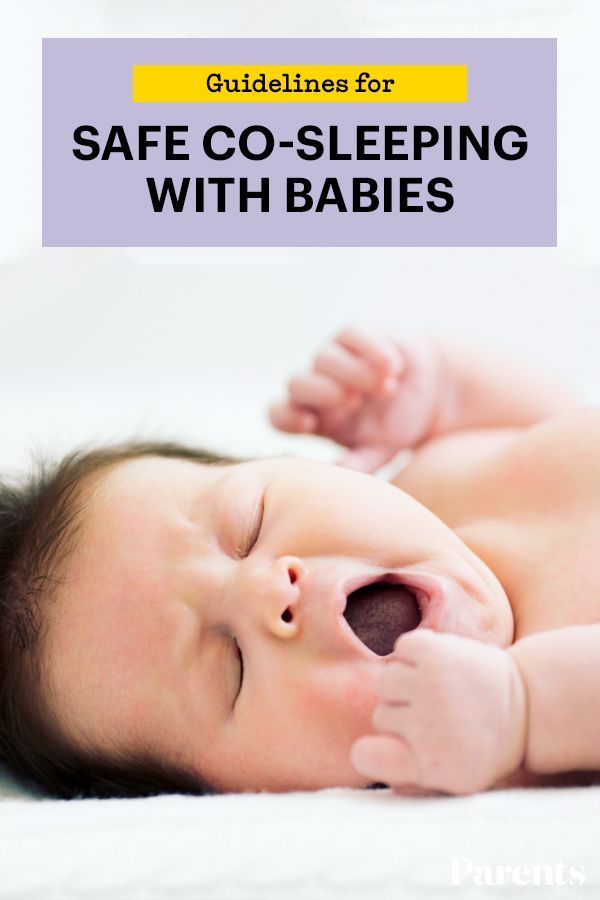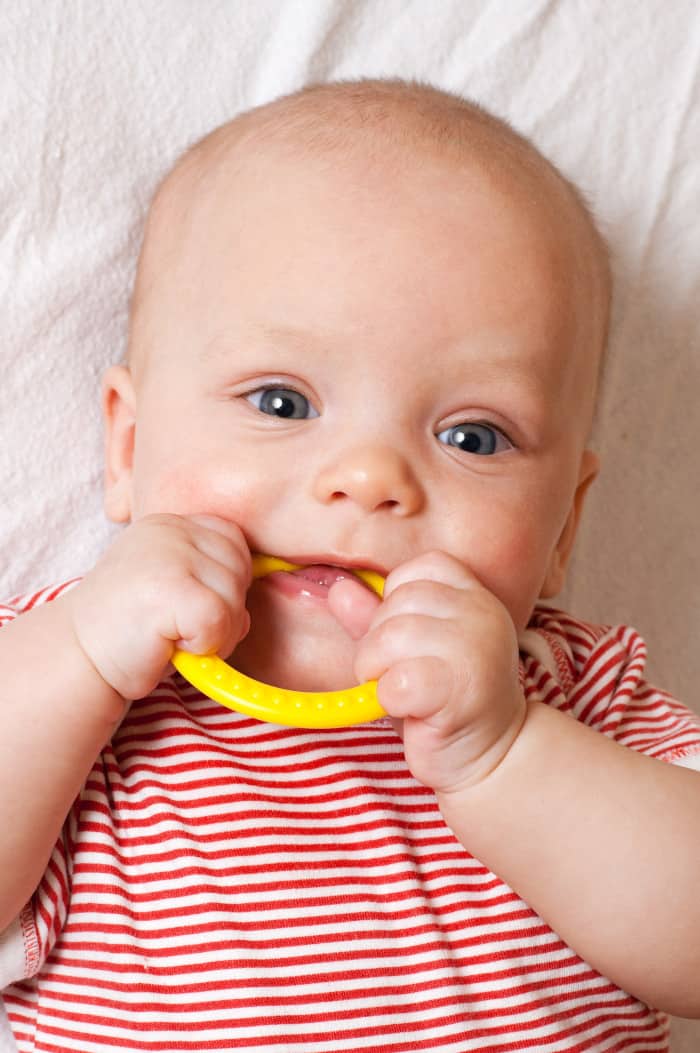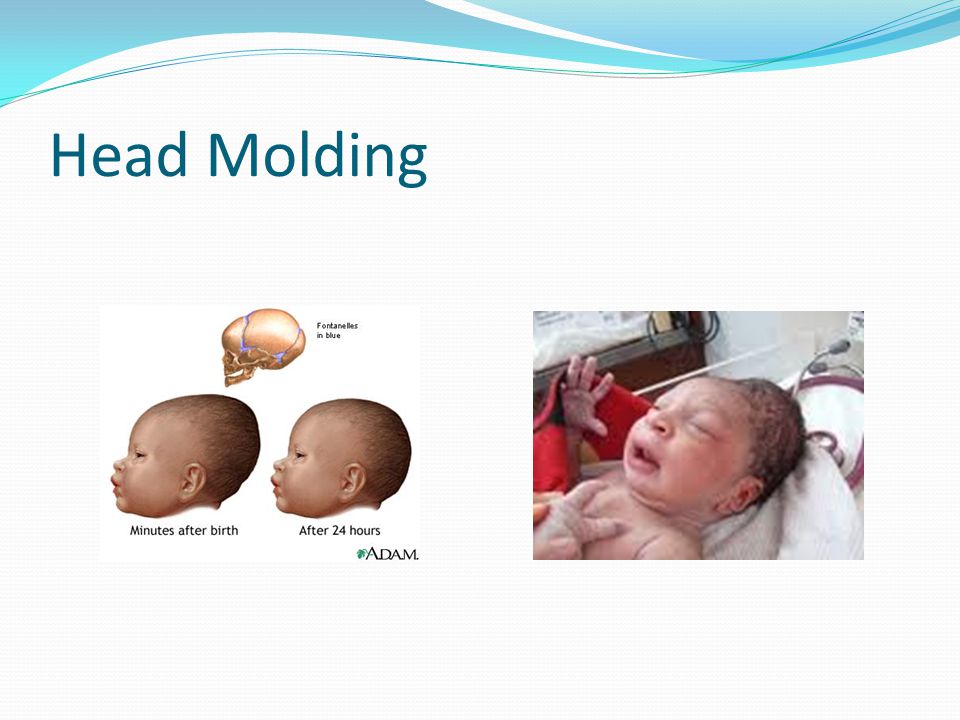Stomach burning pain pregnancy
Indigestion and heartburn in pregnancy
Indigestion, also called heartburn or acid reflux, is common in pregnancy. It can be caused by hormonal changes and the growing baby pressing against your stomach.
You can help ease indigestion and heartburn by making changes to your diet and lifestyle, and there are medicines that are safe to take in pregnancy.
Symptoms of indigestion and heartburn
Symptoms of indigestion and heartburn include:
- a burning sensation or pain in the chest
- feeling full, heavy or bloated
- burping or belching
- feeling or being sick
- bringing up food
Symptoms usually come on soon after eating or drinking, but there can sometimes be a delay between eating and developing indigestion.
You can get symptoms at any point during your pregnancy, but they are more common from 27 weeks onwards.
Things you can do to help with indigestion and heartburn
Changes to your diet and lifestyle may be enough to control your symptoms, particularly if they are mild.
Eat healthily
You're more likely to get indigestion if you're very full.
If you're pregnant, it may be tempting to eat more than you would normally, but this may not be good for you or your baby.
Find out more about a healthy diet in pregnancy and foods to avoid.
Change your eating and drinking habits
You may be able to control your indigestion with changes to your eating habits.
It can help to eat small meals often, rather than larger meals 3 times a day, and to not eat within 3 hours of going to bed at night.
Cutting down on drinks containing caffeine, and foods that are rich, spicy or fatty, can also ease symptoms.
Keep upright
Sit up straight when you eat. This will take the pressure off your stomach. Propping your head and shoulders up when you go to bed can stop stomach acid coming up while you sleep.
Stop smoking
Smoking when pregnant can cause indigestion, and can seriously affect the health of you and your unborn baby.
When you smoke, the chemicals you inhale can contribute to your indigestion. These chemicals can cause the ring of muscle at the lower end of your gullet to relax, which allows stomach acid to come back up more easily. This is known as acid reflux.
Smoking also increases the risk of:
- your baby being born prematurely (before week 37 of your pregnancy)
- your baby being born with a low birthweight
- sudden infant death syndrome (SIDS), or "cot death"
There's lots of help available to stop smoking. Talk to your midwife or call the NHS Smokefree helpline on 0300 123 1044. Find out more about stopping smoking in pregnancy.
Talk to your midwife or call the NHS Smokefree helpline on 0300 123 1044. Find out more about stopping smoking in pregnancy.
Avoid alcohol
Drinking alcohol can cause indigestion. During pregnancy, it can also lead to long-term harm to the baby. It's safest to not drink alcohol at all in pregnancy.
Find out more about alcohol and pregnancy
When to get medical help
See your midwife or GP if you need help managing your symptoms or if changes to your diet and lifestyle do not work. They may recommend medicine to ease your symptoms.
You should also see your midwife or GP if you have any of the following:
- difficulty eating or keeping food down
- weight loss
- stomach pains
Your midwife or GP may ask about your symptoms and examine you by pressing gently on different areas of your chest and stomach to see whether it's painful.
If you're taking prescription medicines
Speak to your GP if you're taking medicine for another condition, such as antidepressants, and you think it may be making your indigestion worse. They may be able to prescribe an alternative medicine.
Never stop taking a prescribed medicine unless you're advised to do so by your GP or another qualified healthcare professional who's responsible for your care.
Medicines for indigestion and heartburn
Medicines for indigestion and heartburn during pregnancy include:
- antacids – to neutralise the acid in your stomach (some are available over the counter from a pharmacist)
- alginates – to relieve indigestion caused by acid reflux by stopping the acid in your stomach coming back up your gullet
You may only need to take antacids and alginates when you start getting symptoms.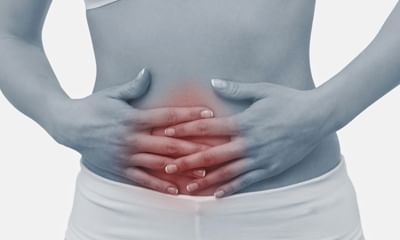 However, your GP may recommend taking them before symptoms come on – for example, before a meal or before bed.
However, your GP may recommend taking them before symptoms come on – for example, before a meal or before bed.
If you're taking iron supplements as well as antacids, do not take them at the same time. Antacids can stop iron from being absorbed by your body.
If antacids and alginates do not improve your symptoms, your GP may prescribe a medicine to reduce the amount of acid in your stomach. 2 that are widely used in pregnancy and not known to be harmful to an unborn baby are:
- ranitidine – a tablet you take twice a day
- omeprazole – a tablet you take once a day
Causes of indigestion in pregnancy
Symptoms of indigestion come when the acid in your stomach irritates your stomach lining or your gullet. This causes pain and a burning feeling.
When you're pregnant, you're more likely to have indigestion because of:
- hormonal changes
- the growing baby pressing on your stomach
- the muscles between your stomach and gullet relaxing, allowing stomach acid to come back up
You may be more likely to get indigestion in pregnancy if:
- you had indigestion before you were pregnant
- you've been pregnant before
- you're in the later stages of pregnancy
Video: Eating well on a budget
In this video, a dietitian gives advice on how to eat healthily on a budget.
Media last reviewed: 13 January 2021
Media review due: 13 January 2024
Stomach pain in pregnancy - NHS
Stomach (abdominal) pains or cramps are common in pregnancy. They're usually nothing to worry about, but they can sometimes be a sign of something more serious that needs to be checked.
It's probably nothing to worry about if the pain is mild and goes away when you change position, have a rest, do a poo or pass wind. But if you have stomach pains and are worried, call your midwife or maternity hospital.
Harmless stomach pains, which can be dull or sharp, may be caused by:
- ligament pain (often called "growing pains" as the ligaments stretch to support your growing bump) – this can feel like a sharp cramp on one side of your lower tummy
- constipation – which is common in pregnancy (find out how to avoid constipation)
- trapped wind
Urgent advice: Call your midwife immediately if you have stomach pain and:
- bleeding or spotting
- regular cramping or tightenings
- vaginal discharge that's unusual for you
- lower back pain
- pain or burning when you pee
- the pain is severe or does not go away after you've rested for 30 to 60 minutes
Any of these could be the symptoms of something that needs to be checked or treated urgently.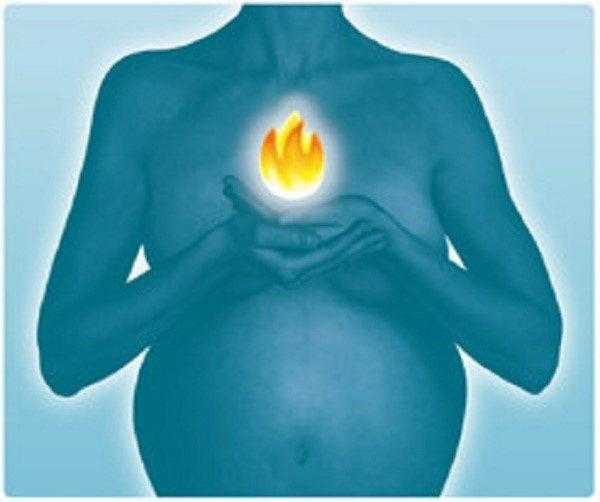
Possible causes of serious stomach pain
Some conditions that can cause stomach pain need to be checked urgently.
Ectopic pregnancy
This is when a fertilised egg implants outside the womb, for example in a fallopian tube. The pregnancy cannot survive and needs to be removed with medicine or surgery.
Symptoms typically appear between 4 and 12 weeks of pregnancy and can include:
- tummy pain and bleeding
- pain in the tip of your shoulder
- discomfort when pooing or peeing
Find out more about ectopic pregnancy
Miscarriage
Cramping pains and bleeding before 24 weeks of pregnancy can sometimes be a sign of miscarriage or threatened miscarriage (when you bleed but the pregnancy normally continues).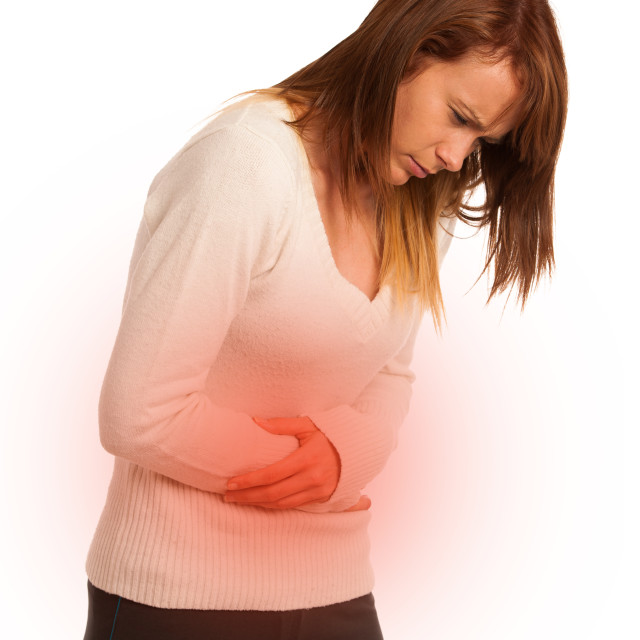
Pre-eclampsia
Pain just under the ribs is common in later pregnancy due to the growing baby and uterus pushing up under the ribs.
But if this pain is bad or persistent, particularly on the right side, it can be a sign of pre-eclampsia (high blood pressure in pregnancy) which affects some pregnant women. It usually starts after 20 weeks or just after the baby is born.
Other symptoms of pre-eclampsia include:
- severe headache
- vision problems
- swollen feet, hands and face
You'll need to be monitored in hospital.
Find out more about pre-eclampsia
Premature labour
If you're less than 37 weeks pregnant and are having regular abdominal cramps or tightenings, call your midwife.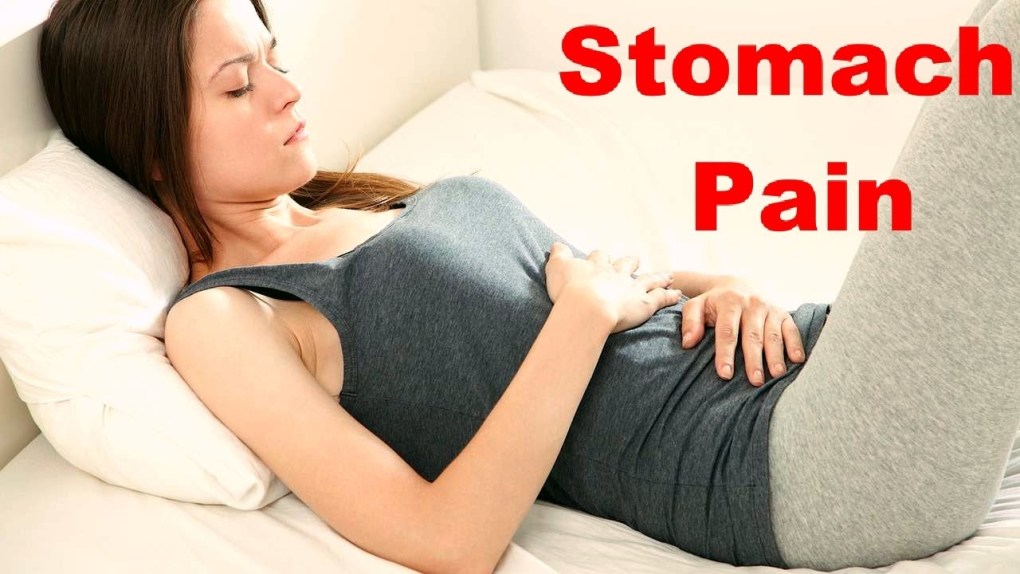
This could be a sign of premature labour, and you'll need to be monitored in hospital.
Placental abruption
This is when the placenta starts to come away from the wall of the womb, usually causing bleeding and constant severe pain that does not come and go like a contraction pain.
It's sometimes an emergency because it means the placenta may not be able to support your baby properly.
You should go to the hospital so you and your baby can be checked.
Find out more about placental abruption
UTI (urinary tract infection)
UTIs are common in pregnancy and can usually be easily treated. They can cause tummy pain and sometimes, but not always, pain when you pee.
Find out more about UTIs
Page last reviewed: 20 June 2021
Next review due: 20 June 2024
What pains occur during pregnancy, what can hurt in pregnant women, what pains are considered normal during pregnancy | NGS
All news“I have a huge belly and have no problems with men”: this girl weighs 146 kg and is not shy – see her photo a Novosibirsk resident received a sentence for fraudulently selling chairs
“Moved to the driver’s seat and disappeared”: a Novosibirsk resident stole a taxi car and got into an accident
The police explained why they did not take fingerprints after a strange accident near Novosibirsk
A four-month-old baby died in a hospital in Irkutsk - the ICR opened a criminal case
“Payments are growing, but the quality of services is terrible!” Novosibirsk residents flooded the NHS with complaints about the cold in the apartments - a map of ice houses to cancer
“Not listed in the morgues”: a 34-year-old man is being sought in Novosibirsk — he disappeared in early autumn
Pupils of the Novosibirsk lyceum raised the Russian flag in 30-degree frost — this caused controversy
Freezing rain hit the regions. The cars were glazed, the streets were skating rinks. Impressive footage
The cars were glazed, the streets were skating rinks. Impressive footage
From the 80s to the 10s: a musical test for those who want to remember the bright moments of the past
“They extinguished it with snow, buckets of water”: a truck caught fire on Dusi Kovalchuk Street — video of eyewitnesses fighting the fire
“They lost a boy”: the story of a young father who went to the North Military District against the persuasion of his family and died
Investigators became interested in the incident with a girl whose back was broken during a lesson at a school in Novosibirsk
Azov against Azov*: an ancient Russian city is fighting back from the phantom of the Ukrainian regiment, trying to change the name for 29 million
The Ministry of Education and Science of the NSO began an inspection after a schoolgirl broke her back in a physical education lesson
“Children sit in hats”: why the residents of Akademgorodok freeze in their apartments and at school - the response of public utilities
The Porsche hood is mangled: the consequences of an accident with a truck and two cars were caught on video
Ruslans began to fly over Novosibirsk more often - what is the reason for this cell
Sisters from Novosibirsk have created an unusual brand of underwear for women - now it is sold out in the Moscow Central Department Store
Three people got poisoned by carbon monoxide near Novosibirsk
All news
Many pregnant women know that any sudden movement can lead to pain.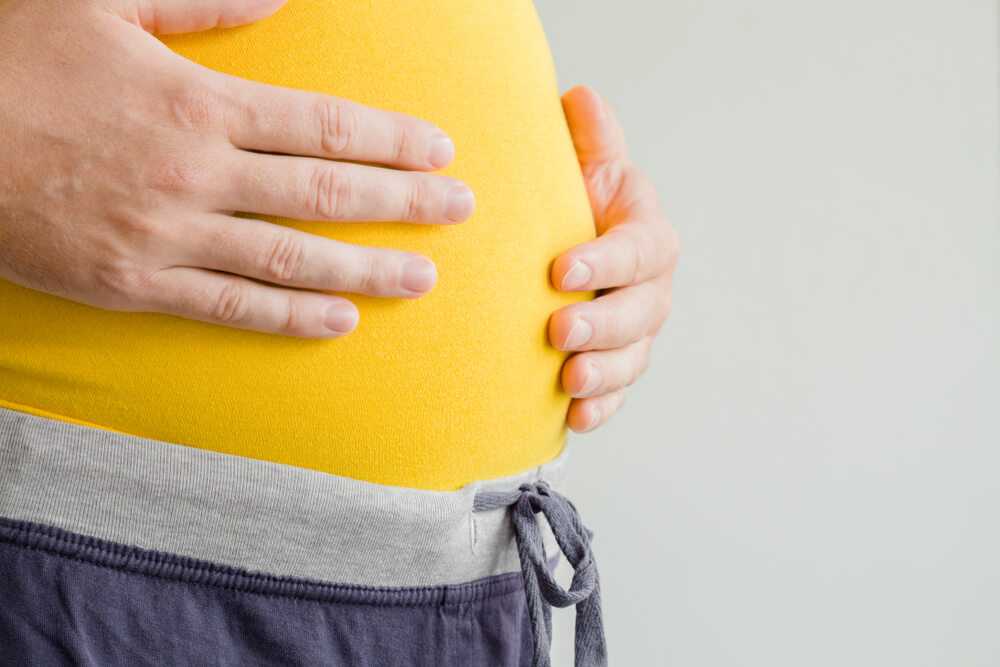 How to figure out if this is normal or a reason to see a doctor?
How to figure out if this is normal or a reason to see a doctor?
Photo: Alexander Oshchepkov
Share
Many women during pregnancy recall Sharik's complaints from their favorite cartoon "Three from Prostokvashino": "The paws ache, then the tail falls off." It would seem that you are enjoying the expectation of the baby, but life always makes its own adjustments: it will pull the lower abdomen, then it will shoot in the lower back, then it will start to prick in the side. An interesting situation exacerbates suspiciousness even more, so I want to put the gynecologist's phone and an ambulance on the speed dial.
Let's find out together with doctors why something hurts all the time during pregnancy and what sensations can be considered relatively normal, and what symptoms should promptly see a doctor.
“Pain and discomfort can occur during almost any pregnancy,” says Yulia Sergeeva, an obstetrician-gynecologist at the Vitromed clinic. - Very often in the first trimester there are minor pains in the lower abdomen. They usually pass at rest. In any case, the doctor who observes the pregnancy should assess the danger of the condition.
- Very often in the first trimester there are minor pains in the lower abdomen. They usually pass at rest. In any case, the doctor who observes the pregnancy should assess the danger of the condition.
Starting from the very first days of pregnancy, the body prepares for future childbirth. The hormonal background changes: progesterone is actively produced, which relaxes the muscles and ligamentous apparatus in order to prepare the uterus and birth canal. It is because of the preparation of the muscular pelvic floor that there are pulling pains in the lower abdomen. They can appear with sudden movements and rises.
— I always tell women: we start behaving like a graceful doe. We do not get out of bed abruptly, we rise like this: we turn on our side and smoothly begin to get up. The uterus relaxes, and any sudden movement can lead to short-term cramping pain. As a rule, such pain very quickly subsides almost to nothing. You don’t need to be afraid of such pain, it’s just a restructuring of the body,” advises Olesya Vedernikova, obstetrician-gynecologist of the Ultrasound Studio network of medical centers.
In the second trimester pain in the lower abdomen may be accompanied by lower back pain. This is due to the increasing load on the spine and muscular frame. Obstetrician-gynecologist Olesya Vedernikova advises to discuss such pains at a scheduled appointment with her gynecologist, and to relieve discomfort, do special exercises and do water aerobics, if there are no contraindications.
Also in the second trimester, the tone of the uterus may increase: the stomach “hardens”. If such a sensation occurs rarely, lasts no more than 10-15 seconds and there is no pain, then this is regarded as the norm. But when pains in the lower abdomen or in the lower back join the increase in tone, it is better to contact a doctor or call an ambulance and go to the hospital to exclude miscarriage or premature birth.
At the end of pregnancy, a new misfortune overtakes a woman: training contractions, which are also called false Braxton-Hicks contractions. They do not happen to everyone, but usually occur from the 34th to the 36th week of pregnancy.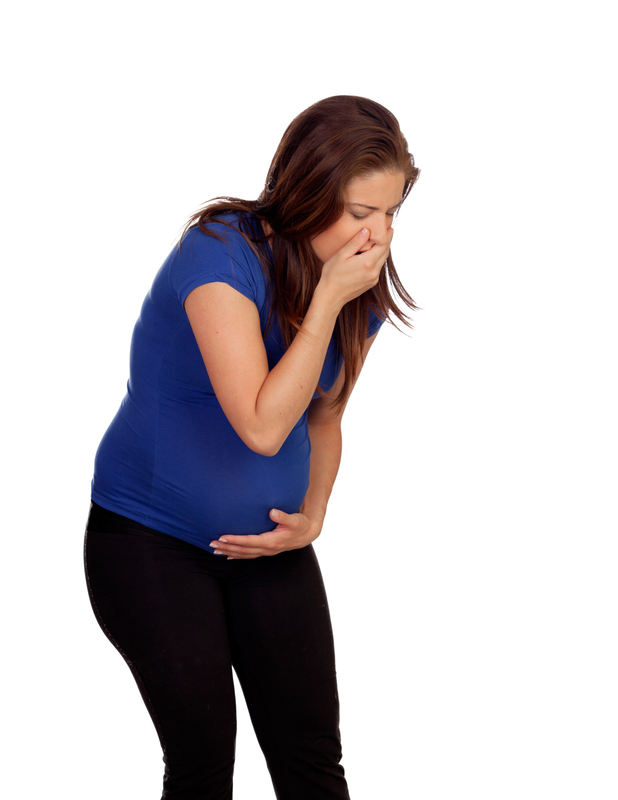
If you feel pulling pains, then you need to watch what interval passes between contractions. As a rule, they are not very painful and occur rarely, for example, once every two days. During them, you can do breathing exercises, which are discussed in childbirth preparation courses - consolidate knowledge in practice and relieve discomfort.
But if the contractions become regular, more painful and prolonged, then you need to go to the maternity hospital - perhaps the birth is already beginning.
All pain during pregnancy can be divided into two types: obstetric and non-obstetric. If a woman has chronic diseases, then they can worsen, so be sure to tell your gynecologist about all diseases.
- Of course, more pain occurs in women who have had gynecological operations, especially ovarian ruptures or ovarian cysts, ectopic pregnancy. This often leads to adhesions that cause discomfort during pregnancy. Also, pain can occur if the patient has uterine fibroids or congenital malformations of the uterus, lists doctor Yulia Sergeeva.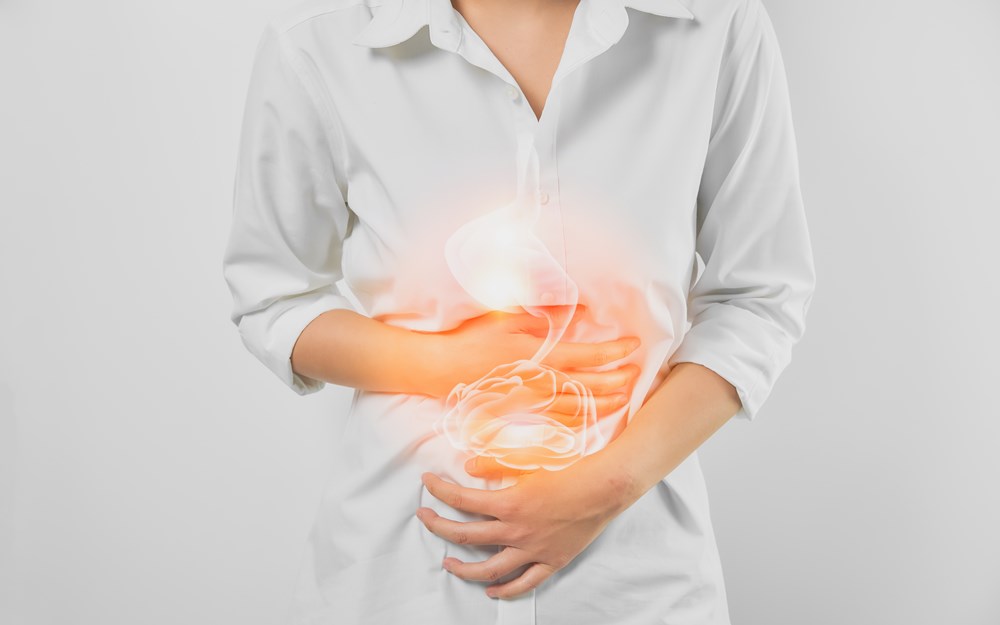
During pregnancy, the uterus enlarges, begins to put pressure on all internal organs, especially the load on the kidneys increases, so pyelonephritis, urolithiasis, cholelithiasis can become aggravated. Very often during pregnancy, women are concerned about the intestines - pain and constipation occur. The danger of these pains is that it is difficult to determine whether there are problems with gynecology or intestines, sometimes even observation in a hospital is required to figure it out.
- There may also be headaches. In this case, it is necessary to control blood pressure. If more than 140 by 90 or you have flies in your eyes, confusion, it’s difficult for you to speak, you need to urgently call an ambulance and contact your obstetrician-gynecologist to determine the tactics of treatment, warns Olesya Vedernikova.
If you feel a sudden sharp pain in the lower abdomen, in the uterus or appendages, stabbing, cutting or cramping, you should immediately see a doctor.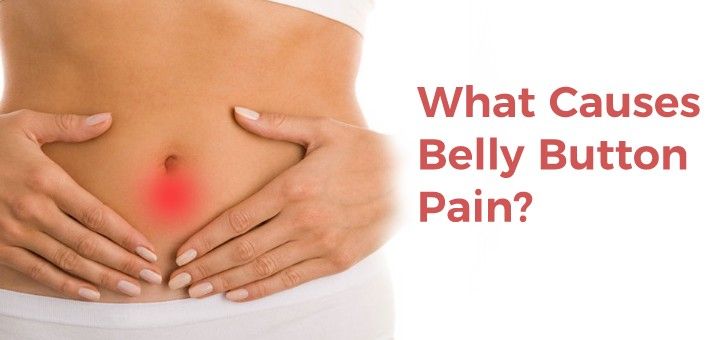 It is also necessary to consult a specialist if the pain gradually increases, even if you have started treatment in accordance with the doctor's prescription.
It is also necessary to consult a specialist if the pain gradually increases, even if you have started treatment in accordance with the doctor's prescription.
Another dangerous signal is abundant discharge from the genital tract. Scarlet discharge may indicate a miscarriage, ectopic pregnancy, missed pregnancy, or placental abruption. And transparent discharge can be a leak of amniotic fluid, which is dangerous for the occurrence of oxygen starvation and infections in a child.
In any case, if you have any pain and something worries, do not engage in self-diagnosis, it is better to consult a doctor who will help you figure out how normal your condition is.
The youngest mother from Novosibirsk just turned 13 last year. NGS journalist Ksenia Lysenko talked to extremely young pregnant Siberians and found out from experts how early childbirth ends. Here are the stories of these girls.
The mother of 10 children, the famous Siberian Oksana Usova, managed to lose 50 kilograms. Once a relative called her an offensive word - "sow". Look how cool Oksana looks now.
Once a relative called her an offensive word - "sow". Look how cool Oksana looks now.
Since 2021, pregnant women in the Novosibirsk Region have been monitored in a new way: we have learned what has changed (for example, the third ultrasound was cancelled). Read about other changes here.
Related
-
27 October 2022, 18:00
Is it too early for them? Why a medical examination by a gynecologist at school: how it is done and whether it is possible to refuse - experts explain 04 March 2021, 02:45 “She doesn’t need a tyrant husband”: a young Siberian from Krivodanovka became the new heroine of the show “Pregnant at 16” -
January 25, 2021, 07:00
Became a mother at the age of 13. How to learn about pregnancy and give birth to Novosibirsk schoolgirls -
May 10, 2020, 13:30
blurry and wrinkled: the beauty showed how the tattoo changes during pregnancy (women are afraid)
Ekaterina Abramova
Pregnancy of the Sosdorovyboli in the belly
See the typo? Select the fragment and press Ctrl+Enter
COMMENTS8
Read all comments
What can I do if I log in?
COMMENT RULES
0 / 1400 This site is protected by reCAPTCHA and Google.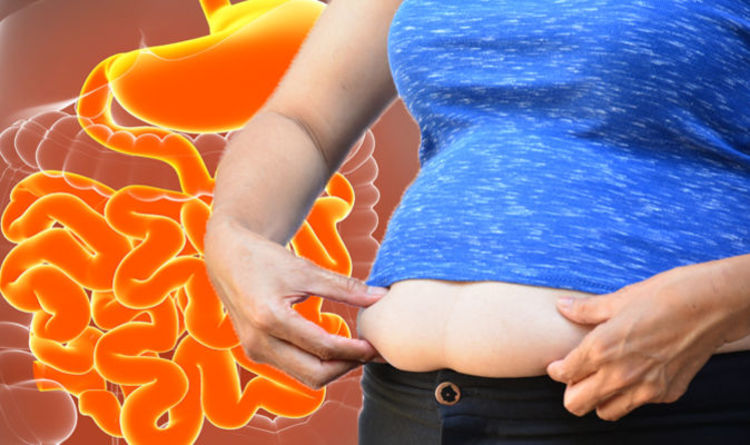 The Privacy Policy and Terms of Use apply.
The Privacy Policy and Terms of Use apply.
RFIRѕRIRѕSMANMANO RARM? 2
RFIRѕRIRѕSM, RARE RARM? 2
toxicosis, problems with the intestines and heartburn
Learn how pregnancy affects the work of the gastrointestinal tract, in which trimester are the symptoms of intestinal disorders and the nausea, and what to do and what to do and what to do. to deal with them.
During pregnancy, the burden on the mother's body increases. The body needs more nutrients, the body produces additional hormones. And the growing fetus puts pressure on neighboring organs, including the stomach and intestines. We tell you what symptoms are observed in each trimester, how to cope with toxicosis and get rid of heartburn.
Contents:
- 2. Toxicosis and pregnancy
- 3. Causes, risks and treatment of diarrhea during pregnancy
- 4. Heartburn and stomach pain during pregnancy
- 5. Bloating, constipation and microbiota during pregnancy
- 6.
 Note
Note
Changes in the functioning of the gastrointestinal tract by trimesters of pregnancy
The average duration of pregnancy is 40 weeks, which are usually divided into trimesters in accordance with the stages of intrauterine development of the child.
Each trimester is accompanied by a number of changes in the body, including in the gastrointestinal tract:
| The first trimester of pregnancy 1–13 weeks | 9020 pregnancy 14–26 week | 902 | Morning sickness Morning sickness Constipation Indigestion Increased appetite Cravings for certain foods Causes of gastrointestinal problems during pregnancy Every pregnancy is accompanied by inevitable changes in the functioning of the digestive system.
If you have chronic diseases of the gastrointestinal tract and you are planning a pregnancy, try to consult your doctor in advance. Symptoms of conditions such as irritable bowel syndrome (IBS) or acid reflux are more likely to get worse during pregnancy. Your doctor will help prepare your body and create a prevention plan to help relieve symptoms during this time. Irritable bowel syndrome, or IBS, is a functional bowel disease that causes frequent abdominal pain, impaired peristalsis, bloating, constipation, or diarrhea. Morning sickness, vomiting and general malaise during pregnancyMorning sickness and morning sickness during early pregnancy are common, because the body undergoes important changes necessary for the development of the child. up to 90% women experience nausea during pregnancy Doctors find it difficult to say with certainty why pregnant women feel sick in the morning. The main theory is hormonal changes. But there are some patterns associated with an increased risk of morning sickness:
Risks of severe morning sickness and how to reduce nauseaNausea and vomiting are usually not associated with a risk to mother and child and will disappear by 16-20 weeks of pregnancy, but it is not necessary to wait that long - there are ways that can help reduce nausea and enjoy the process of waiting for a new person:
In rare cases, pregnant women may develop hyperemesis gestationis or excessive vomiting. This is a serious condition that can lead to dehydration, kidney damage, seizures, abnormal heart rhythms, and even death. Signs of dehydration include: dry mouth, dizziness, dark urine, infrequent urination and/or dizziness. Symptoms of excessive pregnancy vomiting:
If symptoms of excessive pregnancy vomiting occur, do not wait until the condition resolves on its own. 0.5–2% pregnant women experience excessive vomiting Diarrhea in pregnancyThe word "diarrhea" comes from the Greek language and literally means "to flow through". This is a condition during which bowel movements or bowel movements occur three times a day or more often. This phenomenon is especially typical for the third trimester of pregnancy, but it can also occur earlier. Symptoms of diarrhea:
Causes of diarrhea during pregnancy poisoning, dysbacteriosis, bacterial and viral infections:
Tip: If you have recently returned from a holiday in an exotic country with nausea and diarrhea and find out you are pregnant, see your doctor as soon as possible. Gastroenteritis One common cause of diarrhea during pregnancy is gastroenteritis or stomach flu. It is caused by bacterial or viral infections: norovirus, rotavirus, E. coli, salmonella, which enter the body through contact with contaminated surfaces, dishes, food and water. Gastroenteritis usually lasts about three days. However, severe illness is a health hazard, especially during pregnancy, as it can cause dehydration, electrolyte imbalance, and lead to preterm labor. The main symptoms of gastroenteritis are diarrhea without blood, nausea and vomiting, stomach cramps and pain, slight fever, headache and muscle pain. Take extra precautions to reduce your risk of getting sick: frequent handwashing and surface disinfection. If the expectant mother has small children, they are not recommended to use the same cutlery. Risks of diarrhea during pregnancy Usually diarrhea during pregnancy is not a cause for concern.
How to treat diarrhea during pregnancy If you have diarrhea during pregnancy, drink plenty of fluids, avoid foods high in fat and sugar, avoid dairy products, and caffeinated drinks. Dehydration is a serious risk, especially during pregnancy, so electrolyte balance should be restored first with fluids and simple foods:
Find out about your body's ability to break down lactose and gluten with the Atlas Microbiota Test. Stomach pain and heartburn during pregnancyMany women experience stomach pain during pregnancy, especially the upper part of the stomach, as well as heartburn - a burning sensation in the chest and esophagus. This is more common in the third trimester, after about 27 weeks. This is an unpleasant but natural phenomenon during pregnancy: the baby grows inside the uterus and presses on other organs, including the stomach. And hormones cause the muscles to relax, which causes acid from the stomach to enter the esophagus and irritate it. In addition, pain can be caused by problems with certain organs such as the gallbladder, or inflammation of the pancreas. Symptoms of heartburn during pregnancy:
It is unlikely that you will be able to avoid cramps and heartburn during pregnancy. Nutrition : try to avoid overeating - eat easily digestible food in small portions; do not eat three hours before bedtime; watch your posture while eating - so the pressure on your stomach will be less. Smoking and alcohol: In addition to known harms to mothers and babies, tobacco smoke also relaxes the muscles in the lower esophagus, allowing acid to enter the esophagus. And alcohol provokes heartburn and acid reflux. Although stomach pain and heartburn often accompany pregnancy, abdominal pain, especially in the third trimester, should be taken seriously. It can be a sign of preterm labor or placental abruption, and puts mother and baby at risk. If you experience severe abdominal pain during pregnancy that is accompanied by the following symptoms, seek medical attention as soon as possible:
Bloating, constipation and microbiota during pregnancy Excessive gas and constipation during pregnancy can be caused by hormonal changes, such as increased production of progesterone. Flatulence - bloating of the abdomen due to the accumulation of gases. Here are a few simple rules that will help improve intestinal motility and avoid constipation and bloating:
If bloating and constipation are accompanied by severe pain that lasts more than 30 minutes, or if you have been constipated for two or more weeks, call your doctor. Gut microbiota and bacteria during pregnancy A woman's body goes through many changes during pregnancy, and this can affect the microbiota, the bacterial ecosystem that lives in the gut. The additional influx of female hormones that accompanies pregnancy alters gut function and affects the microbiota. This is good, because the bacterial community is constantly adjusting to external and internal conditions in order to keep up with the needs of the body. To keep your gut bacteria running smoothly, they need your help. Provide them with healthy foods and plant fibers. Fruits, vegetables, whole grains, nuts, and seeds contain prebiotics, special substances that beneficial bacteria feed on. When properly balanced, the bacteria even increase your body's defenses against harmful microorganisms that can cause gastroenteritis during pregnancy. The Atlas Microbiota Test will help you understand how to prepare your intestines for a future pregnancy and reduce the risk of digestive problems. ☝️ Take noteNow you have all the necessary knowledge and tools to help you deal with digestive problems during pregnancy. They are quite varied and quite natural, but in some cases it is necessary to immediately seek medical help:
More articles on the causes of digestive problems on the blog:
|
 They are more often caused by hormonal changes and increased stress on the organs, but they can also be associated with lifestyle and health conditions, for example:
They are more often caused by hormonal changes and increased stress on the organs, but they can also be associated with lifestyle and health conditions, for example: 
 A toast or a slice of bread will help reduce nausea;
A toast or a slice of bread will help reduce nausea;  It is necessary to seek medical help as soon as possible - the doctor will prescribe treatment, help adjust the diet and lifestyle of the expectant mother.
It is necessary to seek medical help as soon as possible - the doctor will prescribe treatment, help adjust the diet and lifestyle of the expectant mother. 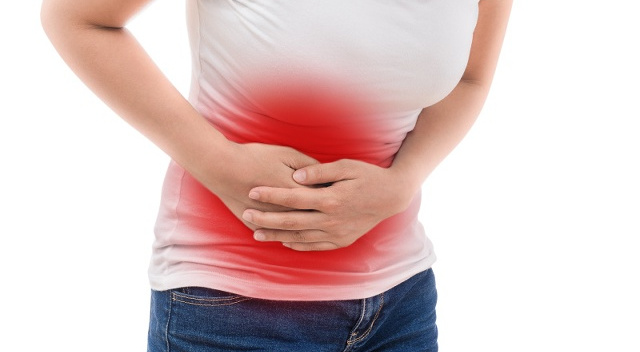
 However, you should consult a doctor if the following symptoms occur during this period:
However, you should consult a doctor if the following symptoms occur during this period: 
.jpg) However, some tips can help reduce their frequency:
However, some tips can help reduce their frequency: 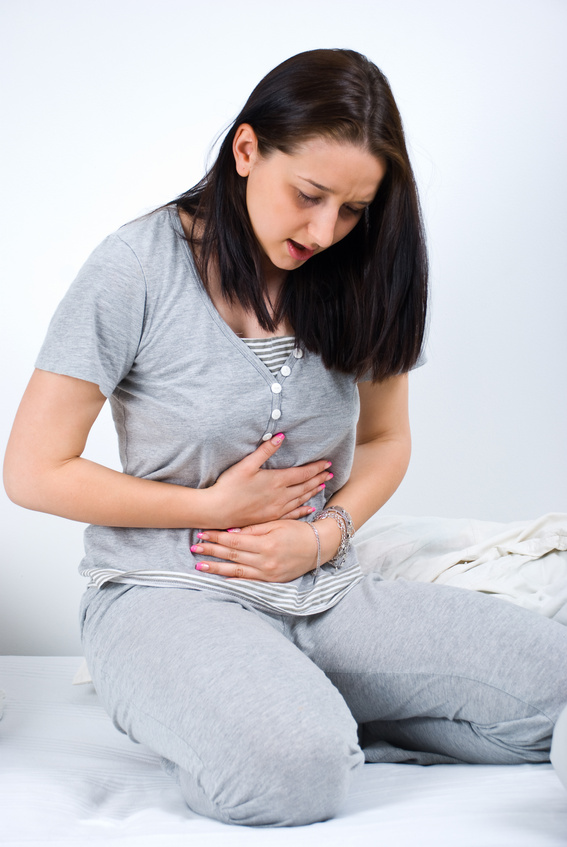 This hormone, essential for nourishing the uterus and fetus, relaxes the muscles of the body, including the muscles in the intestines, which slows down digestion and increases flatulence. A similar reaction of the body can be observed before each menstruation, when the production of progesterone increases.
This hormone, essential for nourishing the uterus and fetus, relaxes the muscles of the body, including the muscles in the intestines, which slows down digestion and increases flatulence. A similar reaction of the body can be observed before each menstruation, when the production of progesterone increases. 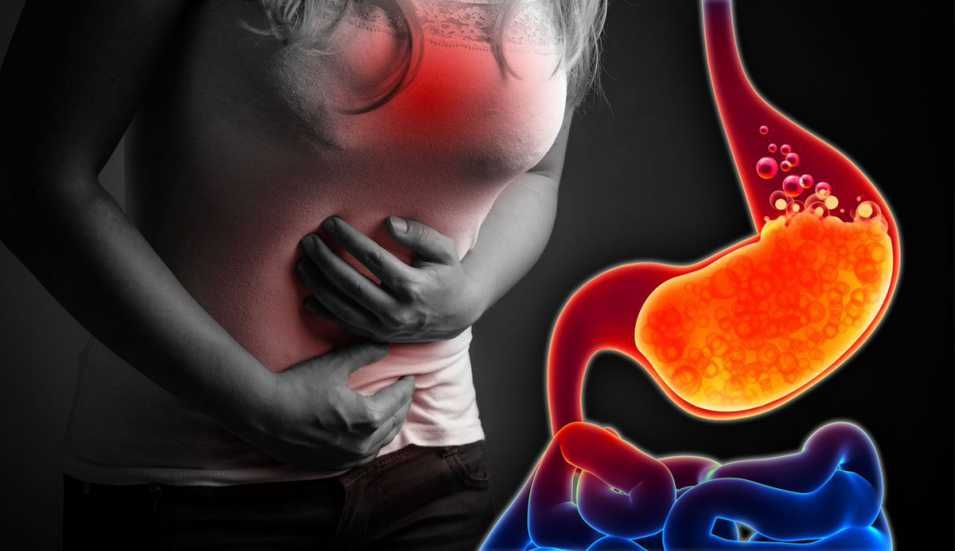 Trillions of microorganisms do important work for the whole body: they synthesize vitamins and essential acids, keep your intestines working and protect it from disease and inflammation.
Trillions of microorganisms do important work for the whole body: they synthesize vitamins and essential acids, keep your intestines working and protect it from disease and inflammation. 




